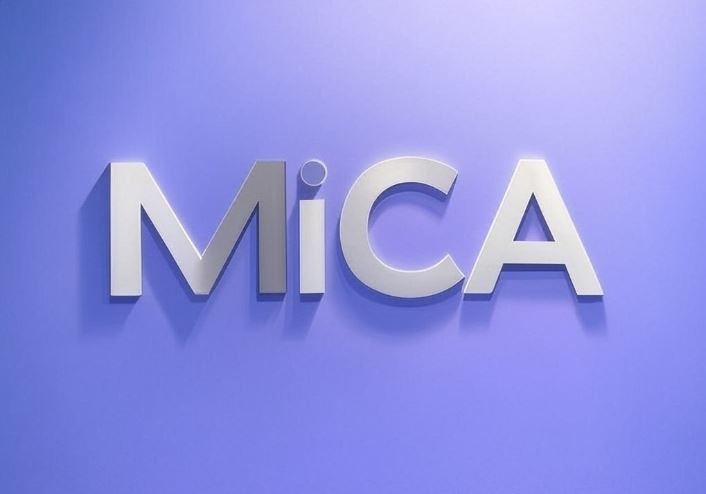
Is a Token Presale in Violation of MiCA in the European Union? Exploring Compliance and Workarounds
The Markets in Crypto-Assets Regulation (MiCA) is a comprehensive regulatory framework introduced by the European Union (EU) to govern the issuance, trading, and management of crypto-assets within its jurisdiction. MiCA aims to provide legal clarity, protect investors, and ensure financial stability while fostering innovation in the crypto space. However, its stringent requirements have raised questions about the feasibility of certain common practices in the crypto industry, such as token presales.
This article explores whether conducting a token presale violates MiCA, whether it is possible to raise funds through a presale before launching a token while complying with MiCA, and potential workarounds, including the creation of an offshore company in a more favorable jurisdiction.
What is a Token Presale?
A token presale is a fundraising mechanism where a project sells its tokens to early investors before the official launch of the token or the project. Presales are often used to raise capital for development, marketing, and other operational expenses. They are popular in the crypto space because they allow projects to secure funding without relying on traditional venture capital or banking systems.
MiCA and Token Presales: Key Considerations
MiCA regulates crypto-assets that qualify as “asset-referenced tokens” (ARTs), “e-money tokens” (EMTs), or “utility tokens.” Utility tokens, which provide access to a specific product or service, are the most relevant to presales. MiCA imposes several requirements on issuers of crypto-assets, including:
- White Paper Requirements: Issuers must publish a detailed white paper containing information about the project, the token, the team, and the risks involved. The white paper must be notified to the relevant national competent authority (NCA) before publication.
- Marketing Restrictions: MiCA prohibits the marketing of crypto-assets before the white paper is approved and published.
- Investor Protections: Issuers must provide clear and transparent information to investors, ensuring they understand the risks associated with the investment.
- Anti-Money Laundering (AML) and Know Your Customer (KYC): Issuers must comply with AML and KYC regulations, which may complicate the presale process.
Is a Token Presale in Violation of MiCA?
Under MiCA, conducting a token presale before the publication and notification of the white paper could be considered a violation. This is because MiCA explicitly prohibits the marketing of crypto-assets before the white paper is approved. A presale inherently involves marketing the token to potential investors, which could fall afoul of this requirement.
Additionally, if the presale involves the issuance of tokens that qualify as financial instruments under the Markets in Financial Instruments Directive (MiFID II), additional regulatory requirements may apply, further complicating the process.
Can You Raise Funds Through a Presale While Complying with MiCA?
While MiCA imposes strict requirements, it is not impossible to conduct a presale in compliance with the regulation. Here are some potential strategies:
- Publish and Notify the White Paper Early: Ensure the white paper is drafted, approved, and notified to the relevant NCA before initiating the presale. This may delay the fundraising process but ensures compliance.
- Structure the Presale as a Private Sale: MiCA’s marketing restrictions primarily apply to public offerings. A private sale to a limited number of accredited investors may not trigger the same regulatory scrutiny.
- Use a Token Purchase Agreement (TPA): Instead of issuing tokens during the presale, issue a TPA that grants investors the right to receive tokens upon the official launch. This structure may avoid the classification of the presale as a public offering.
- Limit Marketing Activities: Avoid aggressive marketing campaigns that could be interpreted as public solicitation. Focus on building a community and engaging with potential investors in a compliant manner.
Offshore Company as a Workaround
For projects seeking greater flexibility, establishing an offshore company in a jurisdiction with more favorable crypto regulations is a common workaround. Here’s how this could work:
- Choose a Crypto-Friendly Jurisdiction: Jurisdictions like the Cayman Islands, British Virgin Islands, Singapore, or Switzerland have more lenient regulations for crypto projects. Establishing a legal entity in one of these jurisdictions can provide greater flexibility for conducting a presale.
- Separate Legal Entities: The offshore entity can conduct the presale and raise funds, while the EU-based entity focuses on compliance with MiCA for the official token launch. This structure allows the project to access capital without directly violating MiCA.
- Legal and Tax Considerations: Work with experienced fintech lawyers, such as Web3Dev’s Fintech Lawyers, to ensure the offshore structure complies with local laws and avoids tax pitfalls. Proper legal structuring is critical to avoid regulatory backlash.
- Transparency and Investor Trust: While an offshore structure can provide regulatory flexibility, it is essential to maintain transparency with investors. Clearly communicate the legal structure and ensure the project remains committed to high standards of governance.
Risks and Challenges
While the above strategies can help navigate MiCA’s requirements, they are not without risks:
- Regulatory Scrutiny: EU regulators may still scrutinize offshore structures if they perceive them as attempts to circumvent MiCA.
- Reputational Risk: Investors may view offshore structures with skepticism, potentially harming the project’s credibility.
- Complexity: Managing multiple legal entities and ensuring compliance across jurisdictions can be administratively burdensome.
Conclusion
Conducting a token presale in compliance with MiCA is challenging but not impossible. Projects must carefully navigate the regulatory requirements, particularly around white paper publication and marketing restrictions. For those seeking greater flexibility, establishing an offshore company in a crypto-friendly jurisdiction can provide a viable workaround, though it comes with its own set of risks and complexities.
Ultimately, the key to success lies in working with experienced legal counsel, such as Web3Dev’s Fintech Lawyers, to ensure compliance while achieving fundraising goals. By balancing innovation with regulatory adherence, projects can thrive in the evolving crypto landscape.
Contact us today to conduct your token presale legally within the EU.



No Comments